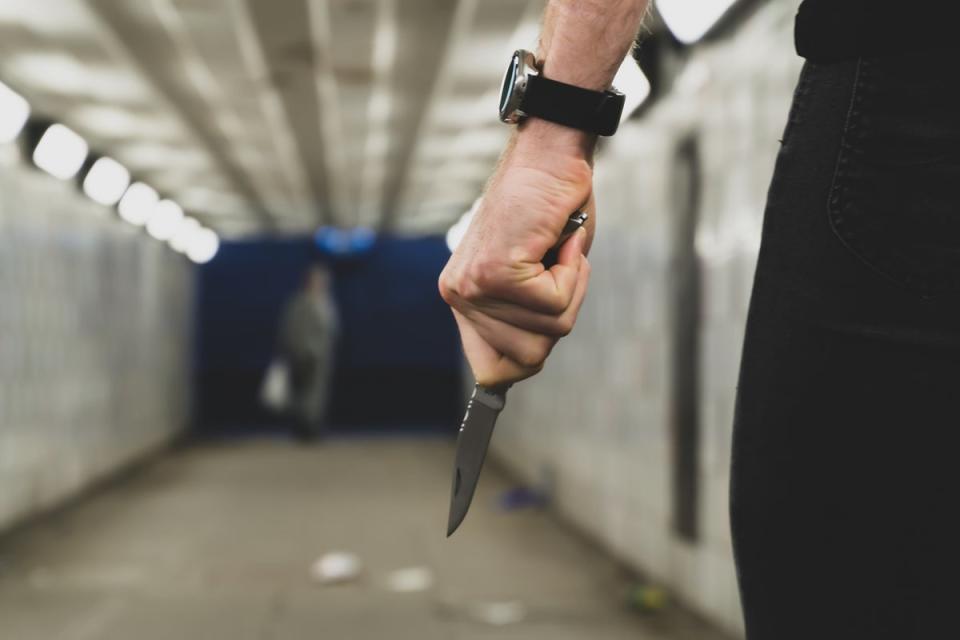Mapped: Worst areas for knife crime in the UK as incidents rise across country
The number of offences involving a knife or sharp instrument increased by 7 per cent last year, official figures show.
New Office for National Statistics data said there were 49,489 of these types of offences recorded by police between January 2023 and December 2023.
This was up from 46,153 (7 per cent) in the same period in 2022 but 3 per cent lower than pre-Covid pandemic levels.
There were 51, 206 such offences in the year ending March 2022.
The ONS said there was a “noticeable increase” of 20 per cent in the number of robberies involving a knife or sharp instrument.
West Midlands was the policing area with the highest amount of these types of offences at 180 per 100,000 of population.
Metropolitan Police, which covers most of London, was second with 165 offences per 100,000 of the population.
Cleveland, the policing area covering Middlesbrough, Stockton, Hartlepool and Redcar was third with 143.
Dyfed-Powys, which covers Carmarthenshire, Ceredigion, Pembrokeshire and Powys in southwest Wales, had the fewest amount of offences at 32.
North Yorkshire had the second-fewest at 36 while Sussex was third with 40.
The ONS data published on Thursday also showed that shoplifting offences had soared to their highest level in 20 years.
A total of 430,104 offences were recorded in the year to December 2023, up 37 per cent from 315,040 in the previous 12 months - the highest level since records began in 2003.

Yvette Cooper, Labour’s shadow home secretary, said the latest figures expose the “scale of Conservative failure on law and order” while “criminals are just getting away with it”.
A spokesman for No 10 said the surge in shoplifting was “clearly unacceptable” and was being driven by “organised criminality”, but noted overall crime rates were down 20 per cent since 2019.
Graham Wynn, assistant director of regulatory affairs at the British Retail Consortium, said “inadequate” police action had given shoplifters “free rein” - with theft losses doubling last year to £1.8 billion and a further £1.2 billion spent on anti-crime measures.
“Not only has the number of thefts increased, but thieves are becoming bolder, more aggressive, and more frequently armed with weapons,” he added.
“We call on the police and the newly elected Police and Crime Commissioners to get tough on retail crime and ensure tackling this issue is a high priority in future local policing plans.”

